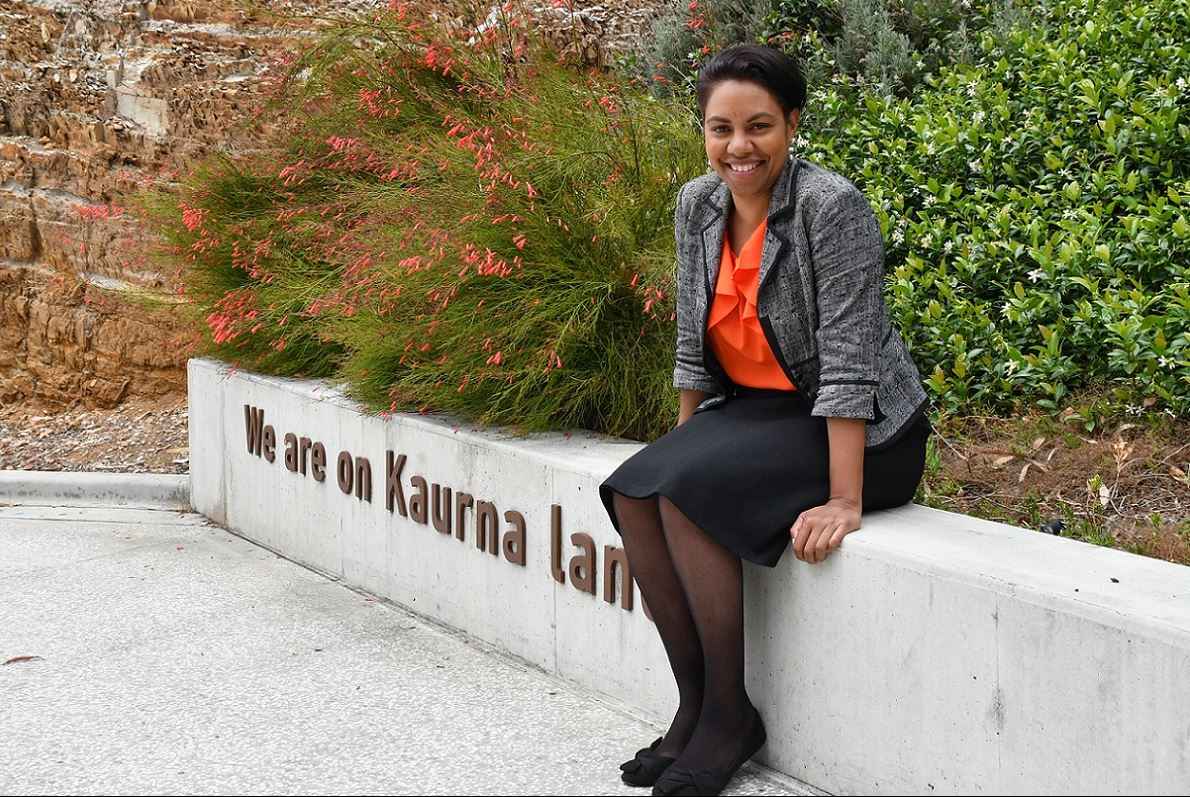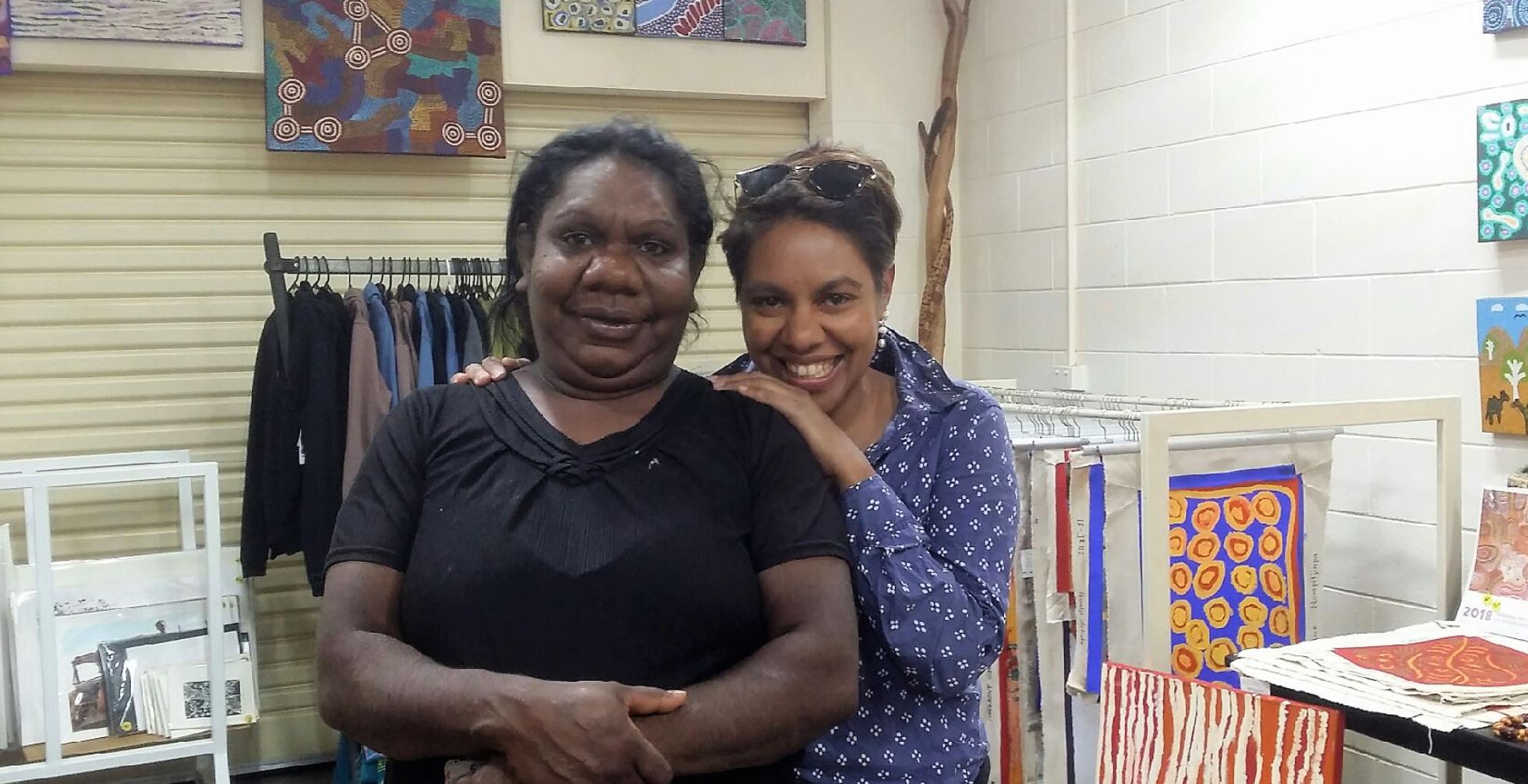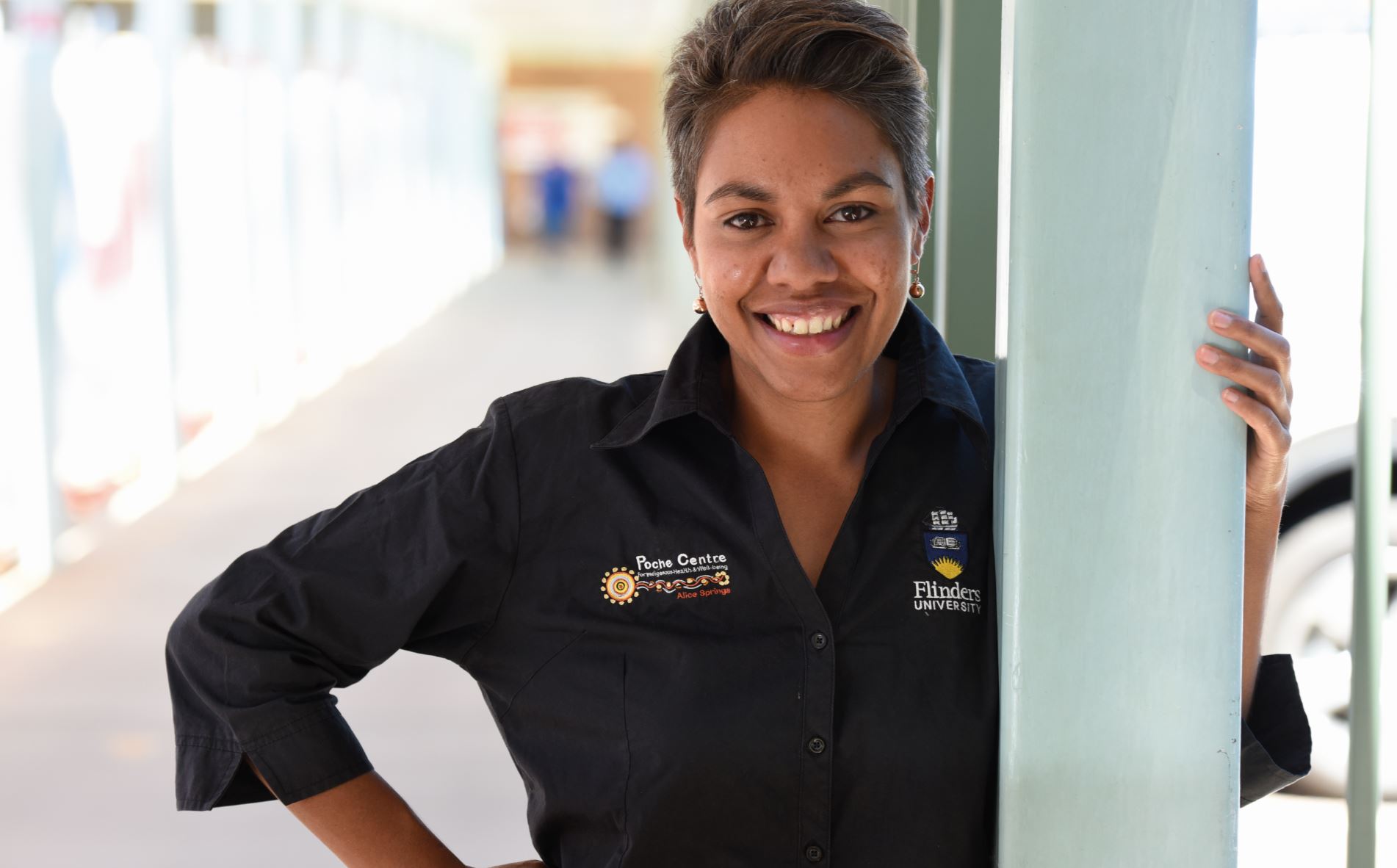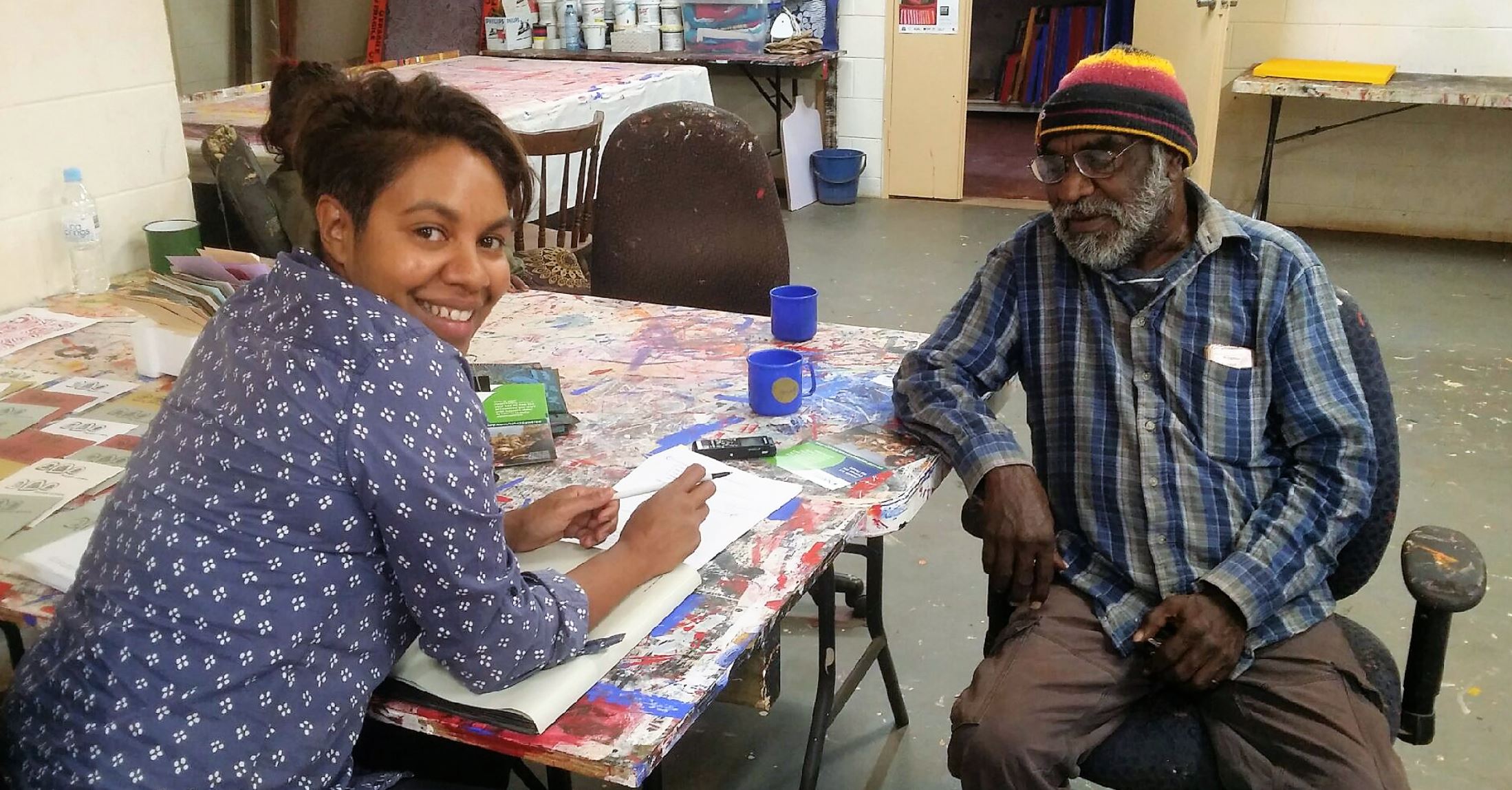
Bidjara woman Ms Maree Meredith today becomes the first PhD graduate of the Flinders Poche Centre for Indigenous Health and Well-Being.
The Flinders University lecturer and researcher has based her research on how Aboriginal art centres are critical to maintain and improve health and happiness in remote Indigenous communities.
After more than a decade working in Central Australia, Ms Meredith, 42, says western health systems should recognise – and even learn from – the unique positive health holistic benefits and social networking created by remote art centres.
“Australia’s art centre model, established for more than 80 years, has evolved from providing craft and hobby drop-in centres for women to becoming much more, including a culturally safe place to promote healthier lifestyles and social and economic growth,” the Flinders University Lecturer in Indigenous Health says.
“They’re not just about producing art but are enabling spaces for people to come together and meet each other, discuss community affairs, seek health advice or even call Centrelink.”
Amid the “chaos and despair” of life in some remote Aboriginal communities are more than 100 art centres or “hubs of happiness,” Ms Meredith says.
While not a replacement for traditional health services, they can complement and work with community clinicians – along with supporting elderly people in remote areas.

As well as mediating on behalf of artists, art centres act as a buffer, interfacing with outside interventions and organisations or services.
“They become hubs of happiness and wellbeing that are beacons of help and hope amid so much chaos, despair and ill health on some communities,” Ms Meredith says.
“They help to overcome this idea of deficit, so people can not just participate in art but also engage in social, emotional, spiritual and also medical health interventions, if health clinicians or aged care services come to the community.”
Like the old saying about the mountain going to Mohammed, Maree Meredith has moved mountains to bring together senior community women and artists from the Anangu Pitjantjatjara Yankunytjatjara (APY) Lands in SA with academics, experts from the arts industry and now government and potential policy-making organisations.
“When we talk about Indigenous disadvantage, we can see people experiencing health and other benefits in their own way, in their own terms,” she says
Ms Meredith’s crusade began in 2012 when she linked senior women and artists from the APY Lands to influence better outcomes for some of Australia’s most disadvantaged, ageing and remote Indigenous people.
Funded by the Australian Research Council Linkage with Ananguku Arts and the Palya Foundation, the study was one of the first efforts to define the health benefits of Indigenous art centres, including one of the first Australian art centres at Ernabella.
“The thesis provides new approaches to health promotion in the Indigenous context, as well as revealing the way in in which Anangu view artwork as both a 9 to 5 job, as well as an exercise in recreating country,” says PhD co-supervisor Associate Professor Eileen Willis, from the College of Nursing and Health Sciences.
“As well as travelling the lands over four years, Maree developed some strong methodology in her collaborative research with Anangu,” Associate Professor Willis says.
Flinders University Associate Professor Claire Drummond and Indigenous studies researcher Associate Professor Simone Ulalka Tur – who also graduates with a PhD today – supported the PhD project.

A new research project, co-funded by the National Ageing Research Institute and a Department of Health Dementia and Aged Care Innovation grant, will formally document the ways in which art centres are currently supporting older people.
Partners in the research include Ikuntii Artists, NPY Women’s Council (Tjanpi Desert Weavers), Mangkatja Resource Agency, Flinders Uni, University of WA and RMIT.
Working for some most disadvantaged, frail, elderly and remote Aboriginal people in the Northern Territory has seen her relocate from Alice Springs to Darwin for the next few years.
A Bidjara woman from southern Queensland, the mother-of-one Ms Meredith decided to go to University to help Indigenous people. After completing an anthropology degree at Charles Darwin University, she joined the Poche Centre in Alice Springs for PhD studies after a masters in applied anthropology at ANU.
Poche Centres connect universities with government and local communities to address the complex health issues that Aboriginal communities face.
They exist thanks to the vision and generosity of philanthropists Greg Poche AO and Kay Van Norton Poche, supported by Poche Indigenous Healthcare Network co-founder and close friend, Reg Richardson.
Over the past decade, the Poches have injected more than $60 million into Aboriginal health in Australia.
Ms Meredith’s PhD studies were also supported by the Lowitja Institute, Australian Red Cross, Wyatt Foundation, Department of Premier and Cabinet, along with PhD co-supervision from Charles Darwin University Associate Professor Ram Vemuri.
Flinders University’s medical and health sciences training, research and service delivery covers the central corridor of Australia – from Darwin, Katherine and Alice Springs in the NT to the Riverland, Murraylands and Mid North and Mount Gambier in SA.
-

More than 100 art centres support Indigenous communities around Australia. Ms Meredith and Douglas Multa, Ikuntji Artists board director, are liaising on a new project on art centres and aged-care delivery in the NT.

